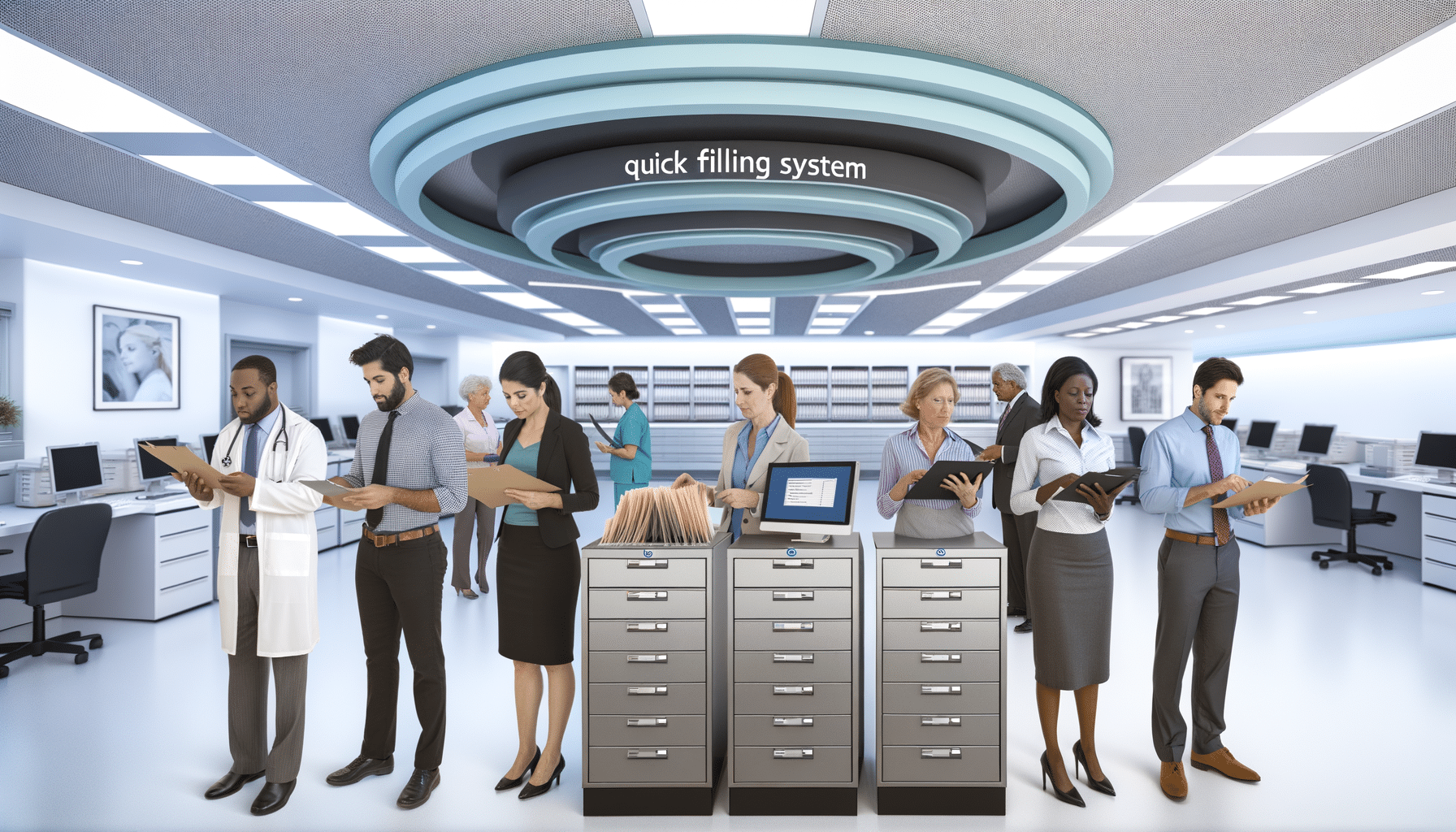- AI in Healthcare
- November 9, 2022
Blockchain in Healthcare Record Management: Beyond the Hype

Revolutionizing Healthcare Record Management with Blockchain
As someone deeply entrenched in the dynamic world of AI and Blockchain, I’ve often pondered the complexities surrounding healthcare record management. From ensuring data security to managing compliance, the challenges are vast and demanding. Blockchain technology, with its promise of transparency and security, seems to be an ideal fit. But how does it truly perform in this crucial domain? Let’s delve deeper into how Blockchain is transcending the hype and making tangible impacts in healthcare.
Understanding the Unique Needs of Healthcare Records
The healthcare industry is highly data-driven, and it mandates the utmost precision in managing confidential patient information. The stakes are extremely high—from preserving patient privacy to meeting stringent regulatory standards. With data breaches and compliance risks hanging like a sword over healthcare institutions, it’s imperative to employ a robust, reliable, and secure system.
Enter Blockchain—a technology that provides immutable and decentralized ledgers, promising enhanced security that can fundamentally alter how healthcare records are managed. But what does Blockchain bring to the table for healthcare?
Blockchain: A Game-Changer in Security and Compliance
In terms of security, Blockchain’s ability to create tamper-proof records ensures that once data is entered into the system, it cannot be altered or deleted without detection. This quality is particularly beneficial in healthcare where accuracy and data integrity are paramount. Blockchain not only prevents unauthorized access but also maintains a detailed history of data transactions.
Moreover, when it comes to compliance, Blockchain helps mitigate the headache of adhering to rigorous regulations such as HIPAA and GDPR. By automating complex workflows, it reduces administrative burdens and ensures that all necessary checks are continuously met.
Improving Data Accessibility and Interoperability
One of the significant bottlenecks in healthcare is the difficulty of accessing patient records across different platforms and institutions. Data interoperability remains a persistent problem. Blockchain paves the way for seamless data exchanges between hospitals, clinics, and specialties, ensuring that healthcare providers have prompt access to pertinent patient information.
This streamlined access results in more accurate diagnoses and, ultimately, better patient care. Instead of replaying the same information at every hospital visit, patients can authorize medical professionals to access their detailed records in mere moments—thanks to Blockchain’s architecture.
Case in Point: Blockchain in Action
Real-world applications of Blockchain in healthcare accentuate the technology’s potential. For instance, Estonia has implemented an e-Health foundation supported by Blockchain, where citizens’ medical records are not only securely stored but can also be accessed globally by authorized personnel. Similarly, companies like Medicalchain are using Blockchain to create decentralized platforms to give patients increased control over their health records.
Streamlining Costs and Administrative Workloads
By automating processes and improving data accessibility, Blockchain can significantly reduce administrative workloads. Staff previously burdened with paperwork can focus more on patient care, which enhances healthcare efficiency overall. Moreover, accurate and automated record-keeping eliminates manual errors, reducing costly mistakes and potential legal issues.
Challenges and Considerations
Despite its potential, Blockchain’s integration into healthcare is not without challenges. Interoperability with existing systems, initial investment costs, and the need for a cognitive and cultural shift are substantial barriers. Stakeholders must also address concerns related to data privacy protections and scalability before Blockchain becomes an industry standard.
However, the benefits—security, compliance, efficient data management—are too significant to ignore. As the technology matures and standardization becomes more prevalent, these challenges are expected to be increasingly manageable.
Conclusion: Embracing a New Era of Healthcare Management
Blockchain in healthcare isn’t just a passing trend; it’s a revolutionary advancement. By addressing critical challenges in record management, it’s set to redefine how healthcare data is handled, accessed, and secured. My advice to industry leaders? Keep a close watch on this space and consider how Blockchain might align with and enhance your own record management strategies.
For those looking to keep ahead of the curve, leveraging technologies like Blockchain and AI isn’t merely an option—it’s a necessity. Subscribe, follow, and engage with me as we navigate these fascinating terrains together, always pushing the boundaries of what’s possible in healthcare management.
Toshendra Sharma is the visionary founder and CEO of RecordsKeeper.AI, spearheading the fusion of AI and blockchain to redefine enterprise record management. With a groundbreaking approach to solving complex business challenges, Toshendra combines deep expertise in blockchain and artificial intelligence with an acute understanding of enterprise compliance and security needs.
Related Posts

Quick Filing Systems for Busy Clinics
Efficient filing methods for high-traffic medical offices.
- December 16, 2024

Handling Rush Requests for Medical Records
Managing urgent medical record requests efficiently.
- December 1, 2024
Archives
- December 2024
- November 2024
- October 2024
- September 2024
- August 2024
- July 2024
- June 2024
- May 2024
- April 2024
- March 2024
- February 2024
- January 2024
- December 2023
- November 2023
- October 2023
- September 2023
- August 2023
- July 2023
- June 2023
- May 2023
- April 2023
- March 2023
- February 2023
- January 2023
- December 2022
- November 2022
- October 2022
- September 2022
- March 2019
Want to get more content like this?
Signup to directly get this type of content to your inbox!!
Latest Post
Organizing External Auditor Access
- December 22, 2024
Document Control in Manufacturing Plants
- December 21, 2024
Handling Rush Financial Report Requests
- December 20, 2024
Managing Record Access After Staff Changes
- December 19, 2024





